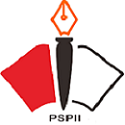Model-Model Pendidikan Karakter di Sekolah
Abstract
Currently, there is no doubt that the emergence of various social phenomena is very worrying in many cases form; violence and unrest and moral decadence that befell this nation. The character of the young generation is already at an alarming point. The morality of this nation has been separated from the norm, ethical, religious and noble culture. Damage to morale among students and youth. It is characterized by the rise of casual sex, drug abuse, trafficking in photos and porn video, and fights among students and youth.
Based on the results of research conducted by the Institute for the Study of Love and Humanity as well as Business Training and Humanities (LSCK PUSBIH), involving 1,666 respondents in large cities, for example; Medan, Jakarta, Bandung, Yogyakarta, and Surabaya. Teen respondents claimed to have free sex is very high, even exceeding 50%. In addition, according to the Centers for Disease Control Jakarta Social Disorder, elementary school, junior high and high school, which involved brawl reached 0.8%, or approximately 1,318 students (1,645,835), as well as victims of drugs 3.9%. And, even more surprising, for the city of Yogyakarta, about 97.05%, free sex. The facts demonstrate how ironic condition of today's teenagers.
Here, the importance of character education in schools internalization intensively by example, wisdom, and unity both intra and extra-curricular programs, as a solid foundation that will benefit future students. Character development is largely forgotten by the school, has been too fascinated with academic targets, dianak favoring the intellectual, emotional and spiritual intelligence while marginalized. It can be concluded that the character of the values of human behavior associated with the Almighty God, ourselves, our fellow human beings, the environment, and nationality embodied in thoughts, attitudes, feelings, words, and actions based on religious norms, laws, etiquette, culture, and customs.
Keywords
Full Text:
PDFReferences
Aan Hasanah, (2013), Pendidikkan dalam Perspektif Karakter, Bandung, Insan Komunika.
Abdul Majid dan Dian Andayani, (2011) Pendidikan Karakter Perspektif Islam, Bandung; PT. Remaja Rosda Karya Offset.
Ahmad Tafsir, (2000), Ilmu Pendidikan Perspektif Islam, Bandung: Remaja Rosdakarya.
Alen Marlis. (2010), Manfaat Pendidikan Karakter bagi Guru Untuk Membangun Peradaban Bangsa.
AS Hornby, (1987) Oxford Advanced Learners Dictionary of Current English, Oxford University Press.
Daniel Goleman (yang dikutip dalam http://pondokibu.com/parenting/pendidikan-psikologianak/dampak-pendidikan-karakter-terhadap-akademi-anak/)
Doni Koesoema A, (2010), Pendidikan Karakter Strategi Mendidik Anak di Zaman Global, Jakarta: Grasindo.
D. Yahya Khan, (2010) Pendidikan Karakter Berbasis Potensi Diri; Mendongkrak Kualitas Pendidikan, Yogyakarta, Pelangi Publishing.
Elkind, David H. dan Sweet, Freddy. (2004). How to Do Character Education. Artikel yang diterbitkan pada bulan September/Oktober.
Endang Sumantri, (2011), Pendidikan Karakter; Nilai Inti Bagi Upaya Pembinaan Kepribadian Bangsa, Bandung; Laboratorium PKn UPI.
E. Mulyasa, (2005). Menjadi Guru Profesional; Menciptakan Pembelajaran Kreatif dan Menyenangkan, Bandung, Rosda Karya.
Jamal Ma‟mur Asmani,(2012) Buku Panduan Internalisasi Pendidikan Karakter di Sekolah, Yogyakarta, DIVA Press, Cet. III.
John M. Echols & Hasan Shadily,(2003). Kamus Inggris-Indonesia, AN English-Indonesia Jakarta; Gramedia.
Kemendiknas, (2010), Disain Induk Pendidikan Karakter Kementerian Pendidikan Nasional, Jakarta: Direktorat Mandikdasmen.
Lickona, Thomas, (1991). Educating for Character; How our schools can respect and responsibility, New York, Bantam.
Poerwadarminta, (2007). Kamus Umum Bahasa Indonesia, Jakarta, Balai Pustaka.
Roestiyah NK, (1992). Masalah Pengajaran Sebagai Suatu Sistem, Jakarta, Bina Aksara.
DOI: http://dx.doi.org/10.24042/atjpi.v7i1.1491
Refbacks
- There are currently no refbacks.
Copyright (c) 2017 Al-Tadzkiyyah: Jurnal Pendidikan Islam

This work is licensed under a Creative Commons Attribution 4.0 International License.

Al-Tadzkiyyah: Jurnal Pendidikan Islam is licensed under a Creative Commons Attribution 4.0 International License. Copyright © UIN Raden Intan Lampung. All rights reserved.








